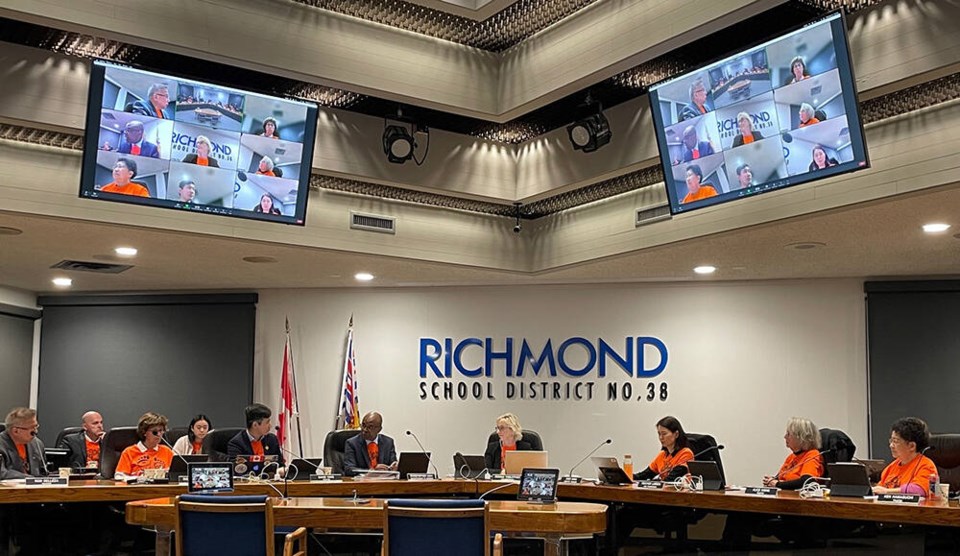The head of the Richmond teachers’ union is hoping parents will contact their MLAs to protest the use of student data to rank schools.
Liz Baverstock, the president of the Richmond Teachers’ Association, outlined a new provincial campaign – headed by the BC Teachers’ Federation – which includes a letter-writing campaign to MLAs.
The Foundation Skills Assessment (FSA) has long been a controversial topic after the Fraser Institute, a right-wing think tank, started using the data about 20 years ago to rank schools.
“(The assessment) creates a division – it creates conflict for parents and families and caregivers and (teachers) feel that,” Baverstock told the board of education on Wednesday.
The Fraser Institute uses the test results, combined with other data such as income levels, to create a ranking system with the top schools receiving a 10/10.
Many private schools, including some religious schools in Richmond, are at the top of these rankings.
“B.C. teachers are concerned about how the results of this test are used by private corporations to entrench already existing inequalities in our school system,” reads the BCTF’s statement about the campaign. “The Royal Bank of Canada tries to use this data to bolster real estate price.”
While Baverstock acknowledged the importance of literacy and numeracy, she told the Richmond News the FSA doesn’t test other things that happen in the classroom such as social-emotional learning.
“That doesn’t show up on that test,” she said.
The data could be released without school identifiers, or it could be used to show strengths and weaknesses of the system, she noted.
Trustee David Yang, in response to Baverstock’s presentation at Wednesday’s meeting, noted ranking schools is an “inappropriate use of that data.”
Trustee Donna Sargent, however, said the FSAs present a “dilemma.” On the one hand, it gives a “snapshot” of how students are doing and this is important for the public to know, she said.
“There needs to be a tool to see how we’re doing,” she said, adding data can help identify which students are not doing as well and how they can be helped.
But she also echoed Yang’s point that the ranking of schools is “highly inappropriate.”
The concerns about FSAs have been around for a long time, said board chair Debbie Tablotney.
“The ranking of schools has caused so much trouble and yet families do turn to it,” she said.
The Fraser Institute commissioned a Leger poll among parents asking the importance of “knowing how your child is doing in the core subjects of reading, writing and math, relative to other students by a fair and objective measure.”
Ninety-five per cent of parents responded that it is important, while 72 per cent expressed “strong support” for fair and objective student assessment.
The Fraser Institute stated that opposition to “large-scale student testing” is “bred into the bone of many teacher unions.” They cite the example of the BCTF with its opposition to the FSAs and its campaigns to get parents to boycott the tests.
The teachers’ union is once again, as they’ve done in years past, encouraging families to pull their kids out of the FSAs, done in Grades 4 and 7.
The Richmond Board of Education unanimously voted to refer the matter to school district staff to see if there is any action that could be taken to address concerns around the FSAs.



